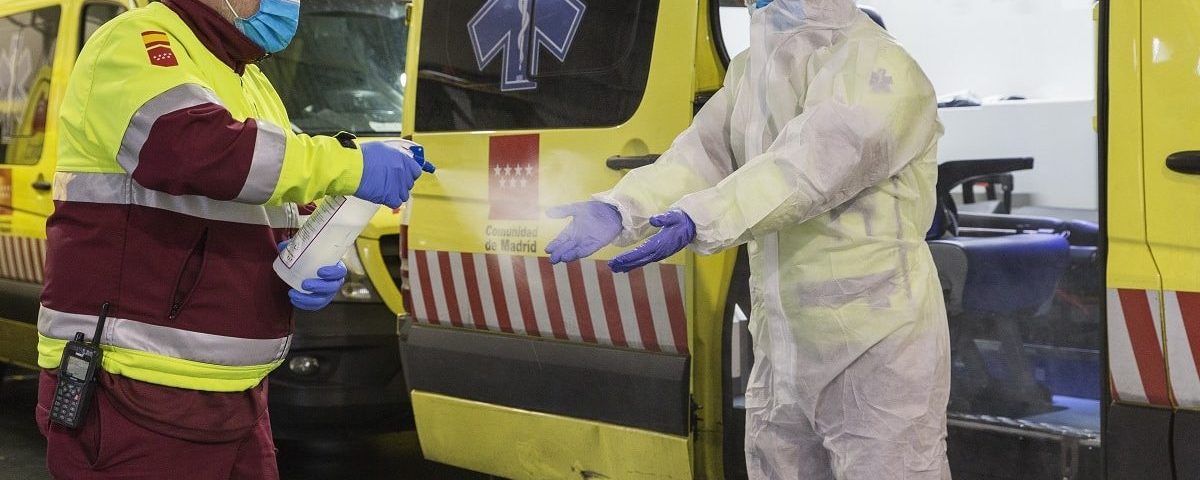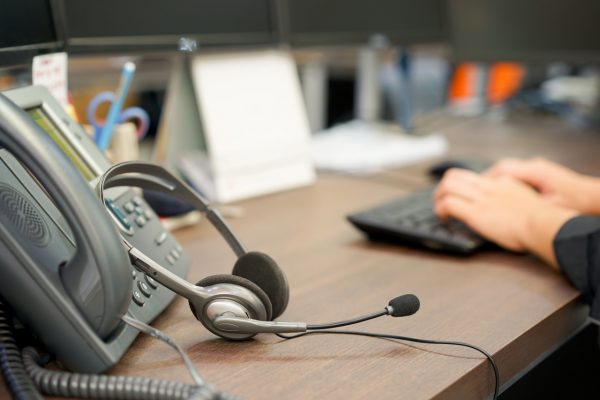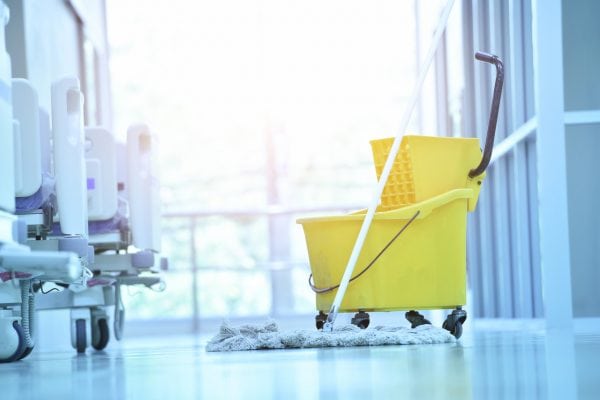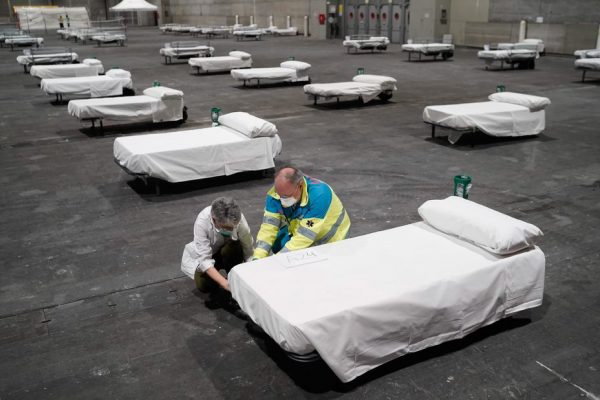
The lines of action against the pandemic caused by the new coronavirus have multiplied. The general population’s confinement, industries and innovation pivoting to meet the demand for medical equipment, and the great work being done by doctors, nurses, and health professionals are a few of the fronts where COVID-19 is fought every day.
In this extraordinary situation, other tasks have become essential for managing an unprecedented crisis. Managing emergency call centers and cleaning services in hospitals, transportation, and ambulances are equally vital. Through the extraordinary work done by our team of individuals, we’re helping keep these firewalls up against the pandemic.
Call centers in the face of the health system’s collapse

Since the start of this crisis, we’ve seen a significant increase in work at emergency call centers like 061 and 112. At Catalunya’s medical emergency service, which has an average of 4,500 calls a day during peak periods like the flu season, we’ve had over 35,000 calls in 24 hours.
Here at Ferrovial, we’re working in three centers in Catalunya that work as one. The largest of these is located in Hospitalet. In one week, we have had to double the physical workspace and hire about 200 people, mostly medical students. To be more flexible, these types of decisions are coordinated and almost entirely made at the local level.
Our staff has a questionnaire that helps them make a pre-diagnosis. In other words, it allows them to assess whether or not a subsequent step is needed, whether they should come in for an appointment or stay at home with all the precautions. This questionnaire is similar to the one available on the Coronamadrid application. Thus, this type of remote assistance has served to screen possible cases so that hospitals don’t collapse.
In the end, the biggest problem with this virus isn’t so much that it’s fatal, but how its spread has saturated health systems. With our reinforced services, we have managed to reduce calls in the specific case of Catalonia from the initial peak of 35,000 to around 18,000 a day. This management is also reflected in hospital saturation.
Cleaning beyond hospitals

In addition to the telephone centers, we have noticed a significant increase in work related to cleaning tasks. At the level of hospitals, the general procedure has been to expand the ICU areas, which require much more cleaning to handle the increase in admittances. As such, we have needed more staff and more training. This virus stays on surfaces and persists for long timeframes, even up to 72 hours. Cleaning is essential.
Without cleaning, hospitals grind to a halt. No hygiene can lead to bigger problems. We have redoubled our efforts at every facility, from simple, low-risk areas like waiting rooms to ICUs and operating rooms. With this specific disease, it is very important to disinfect the elements that may contribute to airborne infection.
Cleaning tasks have also increased outside the hospital environment. This is something we’ve noticed, especially in the period before the state of emergency and confinement. For instance, at companies where a case of COVID-19 was detected, thorough disinfection work was carried out both to eliminate the virus and to ensure the workers’ safety. We’ve had to perform in-depth work at many offices and in the Madrid metro.
We’re talking about deep cleaning, where each object is cleaned carefully with products such as sodium hypochlorite, and cleaning tools are discarded or washed regularly. It’s not as simple as cleaning surfaces with soap and water. In the period before confinement or in services that are still open, this must be done regularly at least once a day, as well.
In the specific case of ambulances, personnel protection takes on special importance. The most important thing is that they do not become infected, both for their own health and because they may become possible vectors of the disease. Thus, cleaning after transporting a patient with COVID-19 must also be exhaustive.
Cleaning services have become a major barrier against the disease, and this has not only required effort from staff, but also training. Training is usually coordinated at the management level, but in this exceptional case where face-to-face training is impossible, decisions had to be made at the company level to guarantee that training was held, to ensure that our staff learned how to put on and take off protective equipment correctly.
At hospitals, the cleaning method is usually determined by the so-called preventive doctor. There are different strategies on products and techniques to use, and furthermore, the protocols are changing every day. We have had to continue to make do with the supplies we had because everything has been in short supply.
IFEMA, an exceptional instance

The Madrid fairground has been turned into a large field hospital. With 5,500 beds, it exceeds the capacity of any other hospital in Spain. For comparison, the La Paz University Complex has 1,300 beds. The IFEMA field hospital’s construction in just over a week is proof that when many companies work together with a clear goal and commitment, we are capable of so much.
Given the exceptional situation that Madrid went through in the first few weeks of the COVID-19 outbreak, the decision was first made to outfit hotels as medical centers and then to build a hospital at IFEMA. We received a call on Friday, March 21, through the former director of management of the La Paz hospital, who was appointed as IFEMA’s director of operations. At that time, we were simply asked for resources, as were other companies that work in hospitals in Madrid.
We started by setting up beds and oxygen for each bed, and then we continued working toward the idea of having a great ICU. In the end, we achieved setting up a 5,500-bed hospital in record time, a project that many companies, the UME, and even volunteers worked on together. It has been a major shared task.
It has been an honor for us to be part of this project and, above all, to be able to rely on our people. Our workers have been fully involved in building the IFEMA hospital. Now, we will continue working on maintenance for the facilities as needed.
Both in this specific instance and with the call centers, hospital cleaning, and ambulance services, it is important to relay a message of infinite gratitude to our people. They are extraordinary. There are no words to describe the encouragement and pride we feel from having the opportunity to work with them. Everyone is doing their part, putting their health on the line. We must keep moving forward, not letting our guard down.





There are no comments yet